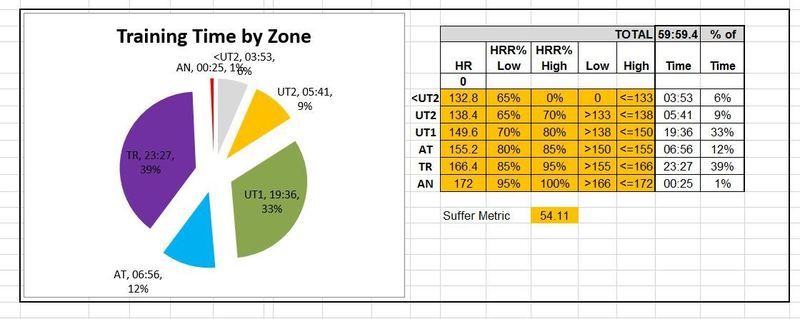Anyone experiencing the same behaviour? Paolo.
Predicted ...
Your minimum (resting in bed) heart rate: 42
Your maximum heart rate: 176
Your UT2 band is a heart rate of 116 bpm to 136 bpm with a mean of 126 bpm.
Your UT1 band is a heart rate of 137 bpm to 149 bpm with a mean of 143 bpm.
Your AT band is a heart rate of 150 bpm to 156 bpm with a mean of 153 bpm.
Your TR band is a heart rate of 157 bpm to 169 bpm with a mean of 163 bpm.
Your AN band is a heart rate of 170 bpm to 176 bpm with a mean of 173 bpm.
Your 70% heart rate is 136 bpm.
Your 85% heart rate is 156 bpm.
And a real workout, apparently well into the *impossible to sustain* TR band.
Split Watt Cal SpM HR
1:28:27.1 21,097m 2:05.7 176 905 28 160
18:06.6 4,300m 2:06.3 174 898 27 157
18:04.7 8,600m 2:06.1 174 898 27 162
18:04.8 12,900m 2:06.1 174 898 28 164
18:01.6 17,200m 2:05.7 176 905 29 167
16:09.4 21,097m 2:04.3 182 925 30 175





